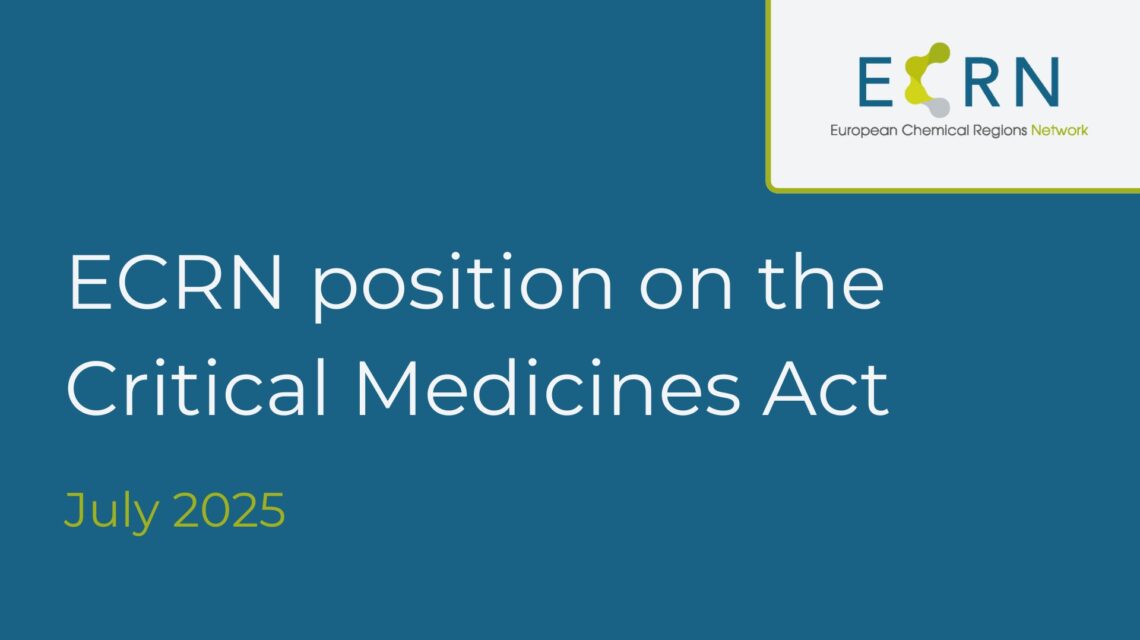ECRN has submitted its response to the European Commission’s public consultation on the Critical Medicines Act after its adoption, welcoming the initiative as a crucial step toward strengthening Europe’s pharmaceutical supply resilience and strategic autonomy.
As a network representing key chemical regions, ECRN emphasizes the urgency of reducing Europe’s dependency on non-EU sources for active pharmaceutical ingredients (APIs) and intermediates, which poses significant risks to health security and supply stability.
To address these challenges, ECRN advocates for:
-
Comprehensive vulnerability assessments of pharmaceutical supply chains, beyond just the severity of medical conditions.
-
Inclusive and regionally balanced incentives that support companies of all sizes and avoid disparities linked to national fiscal capacities.
-
Reform of EU state aid rules to allow faster, broader investment responses through tools like IPCEI and STEP.
-
Simplified regulatory frameworks that build on existing systems like the European Medicines Verification System (EMVS), avoiding unnecessary administrative burdens.
-
Coordinated European stockpiling strategies, replacing fragmented national mandates to improve efficiency and cost-effectiveness.
ECRN also calls for a smarter procurement approach—one that balances affordability with supply reliability, sustainability, and supplier diversification. Joint procurement should remain flexible and well-targeted to avoid market distortion.
Finally, the network highlights the need to align new environmental regulations (e.g. on micro-pollutants and PFAS) with industrial capabilities to ensure they support, rather than hinder, Europe’s strategic autonomy and competitiveness.
Read the complete document here: ECRN position on the Critical Medicines Act.



